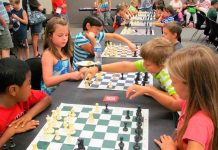Урок английского языка в 9 «А» классе
Дата проведения: 22.02.2011 г.
Тема урока: «Travelling: for and against»
Образовательные цели:
-
Закрепление знаний по теме «Путешествие»
Развивающие цели:
-
Развитие умений употреблять слова и глаголы – связки;
-
Развитие навыков аудирования, диалогической и монологической речи;
-
Развитие умений корректно вести дискуссию, умения прийти к единому решению.
Воспитательные цели:
-
Воспитание культуры общения, положительной мотивации изучения английского языка.
Тип урока: урок — диспут
Оборудование и материалы: ТСО, УМК, фотографии, ватман, маркеры
Структура урока:
| Этап урока | Содержание этапа | Время | |
| | Организационный момент | Приветствие, объяснение целей и задач урока | 1 мин |
| | Разминка, свободная беседа по теме | Диалогическая речь в формате Учитель – ученик – ученик… | 7 мин |
| | Групповая работа над проектом «за» и «против» | Предварительный этап работы над проектом | 7 мин |
| | Защита проектов учащихся | В форме полилога | 7 мин |
| | Аудирование | Выполнение заданий № 2,3 УМК «New Opportunities Intermediate» стр.40 | 5 мин |
| | Заключительный этап проекта | Защита своей точки зрения с обязательным выходом на совместное решение, творческий диалог по теме | 10 мин |
| | Подведение итогов | Учитель подводит итоги урока, выставляет оценки | 3 мин |
Ход урока
| Речь учащихся | |
| Организационный момент | |
| Hello, dear boys and girls! How are you? Glad to see you. Sit down, please. So, let us start. |
|
| Разминка, свободная беседа по теме | |
| Today our lesson is devoted to the theme «Travelling: for and against». But to start with lets define what travelling is. So who will answer? |
|
| Well, thank you. You see so many people, so many opinions. As a rule, the major people love travelling. Why? |
|
|
Well, I see, there are a lot of pluses concerning travelling. By the way, some people are not crazy about travelling at all. Do you agree? Why? |
|
| Yes, you see, this is the point! As the proverb says, «So many people so many habits». And still, what about you? Who are you – a globe-trotter or a stay-at-home? What are your preferences? |
|
| Well, its obvious, travelling is a very complex topic. Lets define what it is. |
|
| Групповая работа над проектом «за» и «против» | |
| Well perform a project on this topic. You will be divided into two teams: one group will discuss «pluses» and another one will discuss «minuses» of travelling. By the way, will you name synonyms to the word «plus»? |
|
| Great! Good for you! And what about «minus»? |
|
| Brilliant! Now, please, take your places separately, I mean, pupils for «pros» — in this corner of the class, and pupils for «contras» — in this corner. You are given large sheets of paper, coloured pens and … your imagination! The task is as follows: during five minutes to write down as many «pros» and «contras» about travelling as possible. Please, put them in a column. Is everything clear? |
Yes!
Учащиеся рассаживаются по группам и сообща работают над лексикой |
| Защита проектов учащихся в форме полилога | |
| Учитель через 5 минут забирает листы ватмана у учащихся и прикрепляет их к доске. На доске: «Linkings: first, second, third, fourth, then, after that, next, so, thus, at last, finally, but, on the contrary, on the one hand, on the other hand, after all, to close it up, to conclude, to round it up, anyway, moreover». | |
| Now, please, have a look at the blackboard, here there are linking phrases. What are they like? When do we use them? |
|
| All of you are right. And the goal of yours is the next one – to defend your point of view on the topic using these linkings in the standard of a dialog. Clear? So begin. | P (+): First travelling is great because its a great opportunity to see the world. Second, its a kind of a rest. P (-): But on the other hand, its not always comfortable to get ready for – packing things, booking tickets and suchlike. P (+): But still its quite exciting – you imagine where youll be, what youll come across and so on. P (+): Fourth, there are a lot of great spots on the globe – why not to suffer a bit bit for this? P (-): I shouldn’t say, I agree. Im just a stay-at-home, and, on the contrary, I suffer when I leave. Besides, travelling is quite expensive. P (+): I agree with you, but on the other hand, there are different kinds of transport to use. If you want to travel as quickly as possible – the plane is for you. P (-): Oh, no, not for toffies! All those things like a boarding card, check-in, gates, an information desk, customs, passport control and what not! P (+): In this way – take a car journey. You may stay wherever you want and observe surroundings. Besides, its quite cheap. Thus, if youre afraid of flying — its right for you! P (-): But on the other hand, there are also a lot of disadvantages when going by car: accidents, air pollution, dangerous driving, delays, lack of motorways… P (-): Plus, narrow roads, overcrowding, queues, roadworks, to say nothing of traffic jams… |
| Oh, children, I see, youve got a lot to speak on the topic. And still lets stick on the problems of travelling. What may happen to people on a move? |
|
| Аудирование с последующим выполнением заданий № 2, 3 УМК | |
| So, what to do? How to survive at least? Let us listen to the tape and make the task. |
|
| Ситуация 1: в полицейском участке, украдены вещи на вокзале, просьба описать вора |
|
| Ситуация 2: женщина почувствовала себя плохо, обращается в вокзальный медпункт с просьбой помочь в выборе лекарства. |
|
| Ситуация 3: мужчина желает попасть в музей, спрашивает, как туда добраться. |
|
| Заключительный этап проекта. Защита своей точки зрения с выходом на совместное решение. Творческий диалог по теме | |
| So, children, now you are aware of what to do if you have some trouble on a move. OK. Its high time to round the theme of the discussion up and to come to the conclusion: what is bigger – a set of good points or one of bad points of travelling? So, youre welcome to form a dialogue concerning to this point. I give you some minutes to revise everything and prove your opinion. Dont forget about linkings when answering! | Диалог «On a Move»
|
| Подведение итогов урока | |
| So, children, you see, there are both minuses and pluses about travelling. Tastes differ, you know. Still the aim has been achieved: youve discussed the problem and come to the conclusion. Thats the point! And, just to round it up, do you remember what Kipling told about travelling? | «He travels the fastest who travels alone» |
| Thank you, children, for your active work. Your marks for the lesson are… The lesson is over. Good-bay! | Good-bay, dear Tatiana Sergeevna! |





